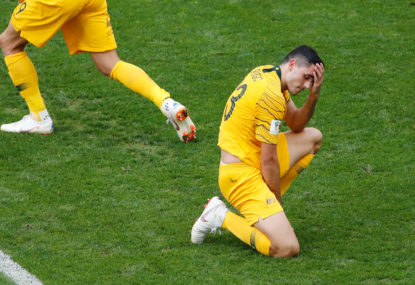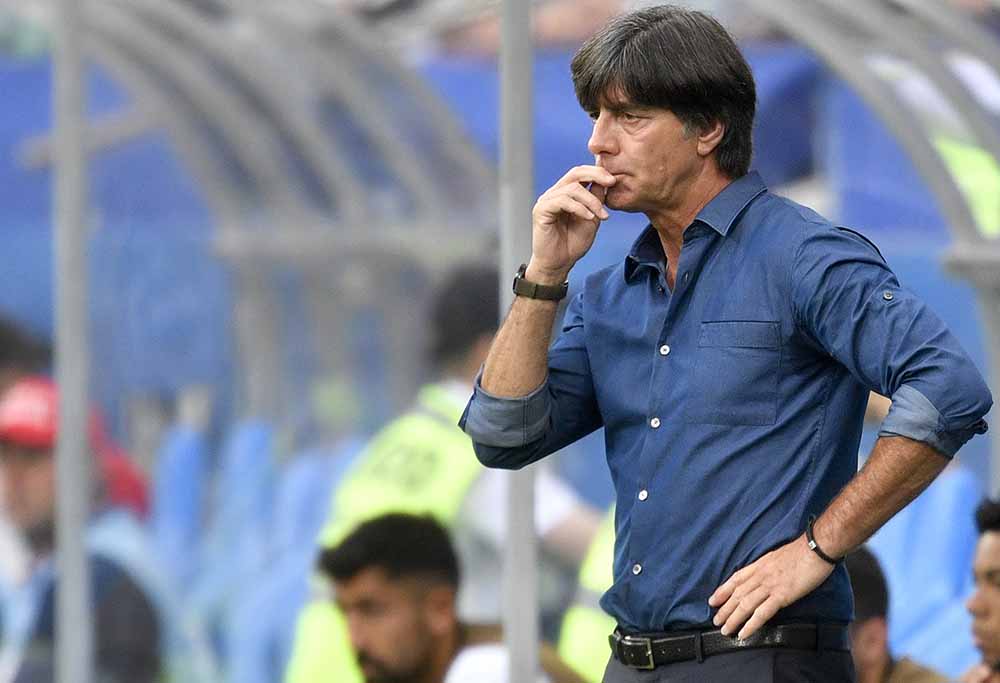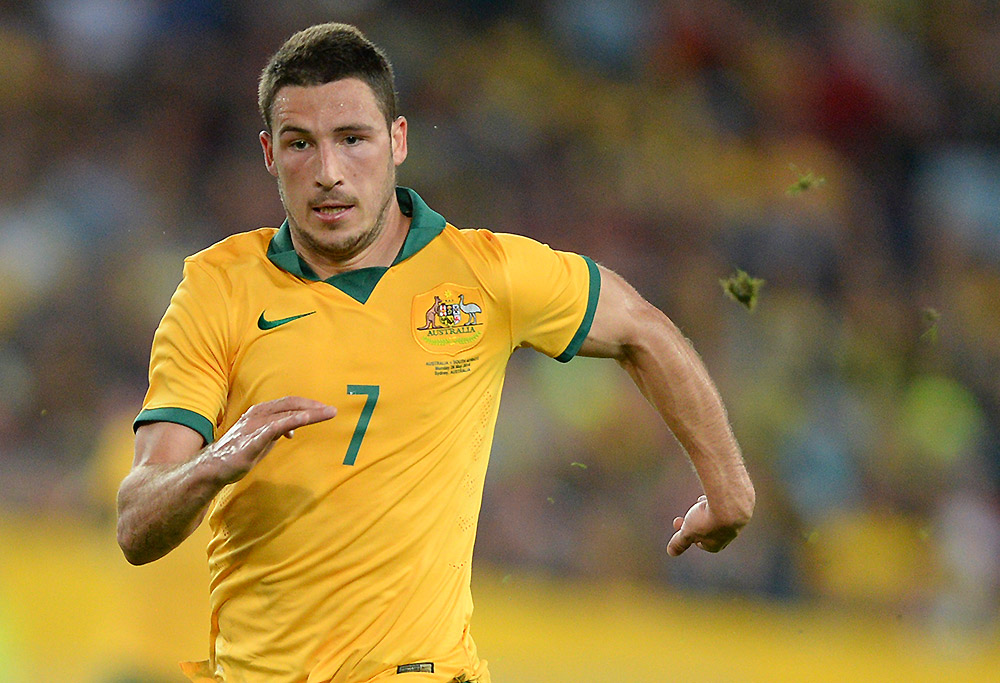Young excellence, promotion battles, and a happy farewell: The Australian team of the week from players around the globe
Even though St.Pauli ultimately lost a high-scoring affair, Jackson Irvine was a standout, as well as scoring a late goal.

Yes, for Australia it’s over before the knockout phase. Again. The blood-letting has begun from the usual suspects, some of it informed, some of it predictably not.
The Australian coaching staff lamented the team’s lack of ‘luck’ but at least nobody brought up witchdoctors curses or anything too outlandish. Realistically, unlucky teams don’t lose 2-0 to a side with nothing to play for.
However, this World Cup has produced more unexpected battles for survival, and thrilling last gap turnarounds than most of its predecessors.
Argentina were four minutes away from elimination before Marco Rojas’ late, late winner revived the nation (and seemingly a completely addled Diego Maradona, whose two-finger salute to Nigerian fans was a disgrace).
Spain were on the brink of exit against Morocco but managed to find a way to claw back to the summit. Brazil have struggled unexpectedly, only finding a way past Costa Rica in injury time.
And then there was Germany! Out at the same stage as our apparently bedeviled-by-bad-luck Socceroos after a 2-0 loss to South Korea – the same nation Australia beat to win the Asian Cup three years ago in happier times for our national team.

Germany coach Joachim Loew (AP Photo/Martin Meissner)
In all of this mayhem, the Socceroos tepid exit from the tournament sits amongst the rubble.
Our national expectations elevated by what seemed like a benevolent draw when the groups were announced glossed over the fact that Australia’s three opponents were all ranked in the top 12.
In the end, those rankings seemed to bear out the nation’s destiny. Standards in world football have equalised drastically in the last 30 plus years. Gone are the days of 10-1 and 9-0 scorelines in the finals.
But within that equalisation comes the reality that the small things make a big difference. Denmark had fewer chances than Australia in the second game but they seized on one and that was all they needed.
In the second half of that match, a similar chance fell to Matt Leckie that had presented itself to Christian Eriksen. The result was different as Leckie’s chance was spurned and Australia’s quest for a goal from open play continued to no avail.

Matt Leckie (AAP Image/Lukas Coch)
Collectively, the Socceroos efforts, when put into perspective, should be applauded. They played as their coach asked, they defended grimly against France, they created chances against Denmark, and against Peru.
But, save for a 50-minute period against the Danes, did they ever look capable of taking a game by the scruff of the neck and imposing their own will on the outcome?
Was Bert van Marwijk really aware of what players he had at his disposal? His tactics in the final game were as mystifying as they were almost masterful in the first game.
While the outcome wouldn’t have mattered in the end due to the France-Denmark stalemate, naming an unchanged eleven (bar the forced change of Andrew Nabbout) suggested a coach who had no Plan B.
It was an approach that was reactive when it needed to be proactive. The substitutions were eerily similar to earlier games, although Daniel Arzani was given more game time against Peru.
However, Tom Rogic coming off for Jackson Irvine with less than 20 minutes to go is completely baffling. Perhaps Jamie McLaren, Dimi Petratos and Massimo Luongo’s warm-up tops were significantly camouflaged to make them invisible to the coach.
It may have made little difference but at least it would have been different. Instead, we got the same. Disappointing, but deep down, probably not unexpected. At least with Germany, we are keeping good company in the Moscow departures lounge.